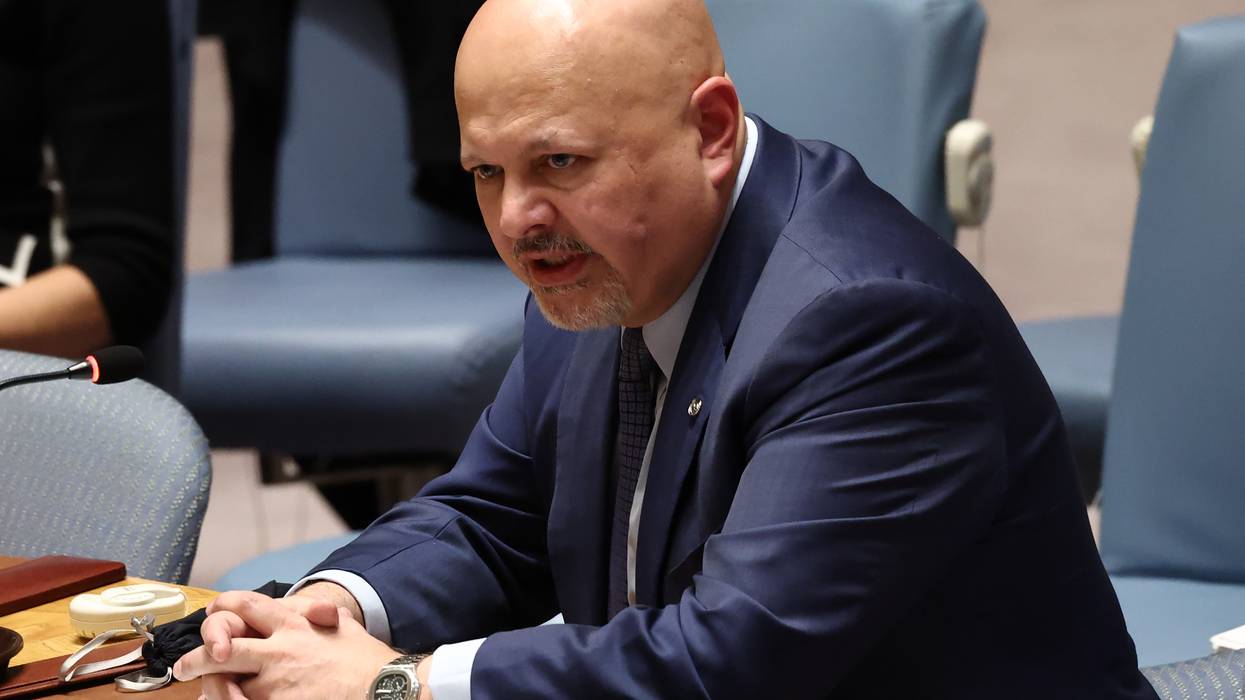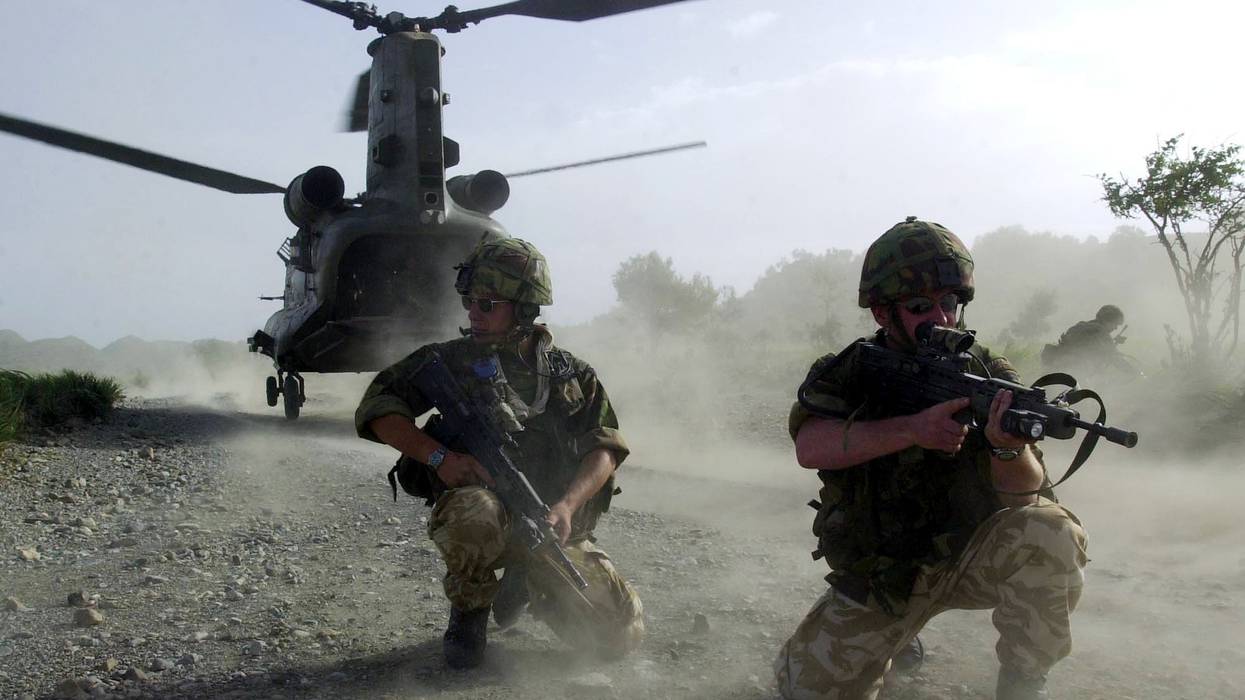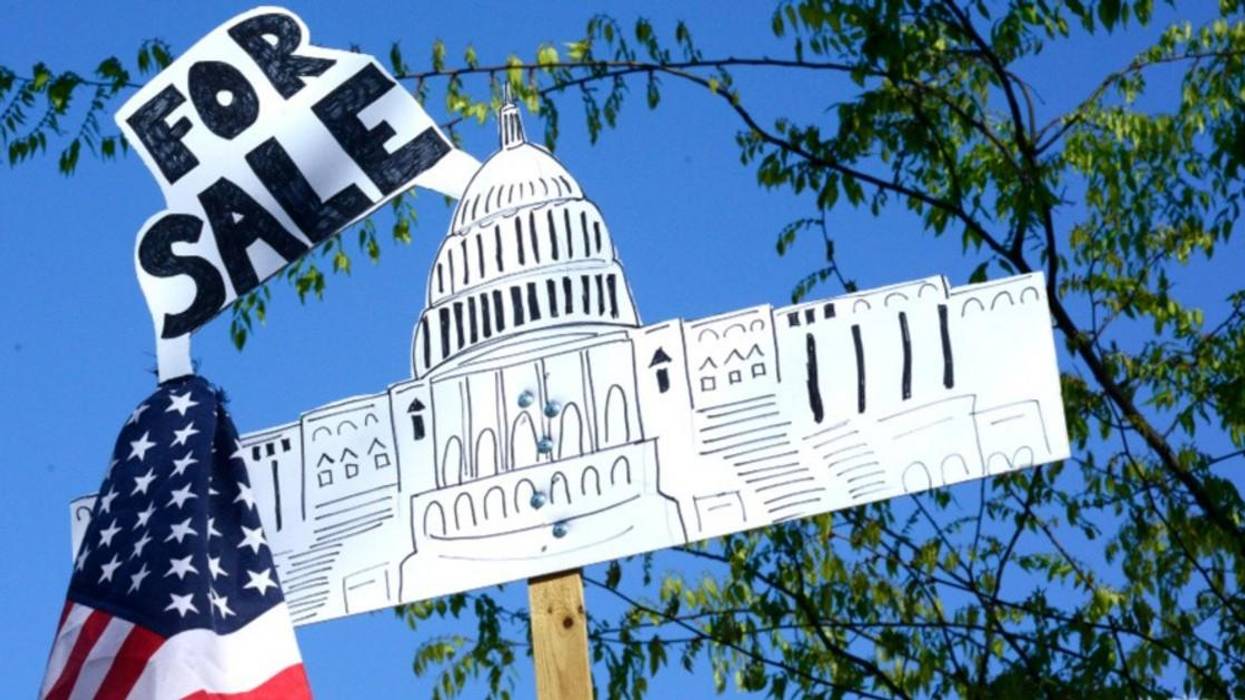Lawyer Linked to Netanyahu Gov't Warned ICC Prosecutor Israel Would 'Destroy' Him Over Arrest Warrants
A British-Israeli lawyer told ICC Prosecutor Karim Khan he'd spoken to a top Israeli legal adviser and warned he should have gone after "lower-level suspects."
One international human rights expert said Tuesday that a new report of alleged threats made against the International Criminal Court's prosecutor regarding his arrest warrants for Israeli officials were "extremely worrying," noting that the reported threats were just the latest show of intimidation against authorities who aim to hold Israel to account for its abuses of humanitarian law.
"The Commission of Inquiry on the [occupied Palestinian territories] quit, Francesca Albanese was sanctioned, and now we have reports of threats against Karim Khan," said London School of Economics human rights fellow Alonso Gurmendi, referring to the mass resignation of three United Nations human rights experts, U.S. sanctions targeting the U.N. special rapporteur on the OPT, and the news about the ICC prosecutor.
The Middle East Eye (MEE) reported that a British-Israeli defense lawyer linked to Israel's government, Nicholas Kaufman, delivered a warning to Khan at a meeting in May, as Khan was facing pressure over the arrest warrants he'd issued for Israeli Prime Minister Benjamin Netanyahu and former Israeli Defense Minister Yoav Gallant. Along with Hamas leader Mohammed Deif—since confirmed dead—Netanyahu and Gallant were accused of war crimes and crimes against humanity.
Netanyahu's government began a military assault on Gaza in October 2023 that has been called a genocide by top human rights experts and groups.
Days before the meeting in May, Kaufman reportedly told Khan that he'd spoken to Roy Schondorf, a legal adviser to Israeli Prime Minister Benjamin Netanyahu.
When they met at a hotel in The Hague, Kaufman told Khan to apply to the ICC to have the warrants for Netanyahu and Gallant reclassified as "confidential" and submit them as part of a "noncriminal, noninvestigative process," allowing Israel to access the details of the allegations and privately challenge them without the outcome of the case being made public.
"This looks like a coordinated attack on international accountability on a scale never before seen."
Kaufman also told Khan that issuing more arrest warrants for Israeli officials including Finance Minister Bezalel Smotrich and National Security Minister Itamar Ben-Gvir over their support for illegal settlements in the West Bank, as the ICC was considering at the time, could result in more U.S. sanctions against the ICC; the Trump administration imposed travel and economic sanctions against Khan earlier this year. More sanctions would "risk destroying the court," said Kaufman, MEE reported.
"All options would be off the table" for Khan if he issued the new arrest warrants, warned Kaufman. "They will destroy you, and they will destroy the court."
Kaufman told MEE that he requested a meeting with Khan in early May "because as an Israeli ICC lawyer, who had experienced the shock of October 7, 2023, I was well placed to understand the matter" and because Khan was "under fire" over his investigation into alleged war crimes committed by Netanyahu's government in Gaza.
At the time of the meeting, Khan was also facing an investigation into allegations of sexual misconduct; he has denied the allegations.
He also told Khan that he should have gone after "lower-level suspects" and that his indictments of Netanyahu and Gallant had "basically indicted Israel."
Kaufman told the outlet that he had simply "told Mr. Khan that he should be looking for a way to extricate himself from his errors" but denied that he'd made a proposal to amend Khan's case against the Israeli officials on behalf of the government—despite his contact days earlier with Netanyahu's legal adviser.
Khan and his wife, lawyer Shyamala Alagendra, who also attended the meeting, told Kaufman his warning that Israel would "destroy" Khan over more warrants "was a clear threat."
Gurmendi said that if MEE's report is true, "this looks like a coordinated attack on international accountability on a scale never before seen."
Khan has faced other threats from officials allied with Israel since investigating Israel's assault on Gaza. In April 2024, the United Kingdom's then-foreign secretary, former Prime Minister David Cameron, had a tense phone call with Khan in which he threatened to defund the ICC and withdraw the U.K. from the court if it issued warrants for any Israeli leaders.
In May 2024, U.S. Sen. Lindsey Graham (R-S.C.) threatened sanctions against ICC officials is Khan applied for more warrants.
Graham "was screaming at us," ICC lawyer Andrew Cayley, who oversaw the court's investigation into Palestine, told The Observer.
After Khan announced later that month that's he'd requested warrants for the Israeli and Hamas leaders, Cayley "began receiving anonymous, threatening phone calls saying, 'You're in a very dangerous position.'"


